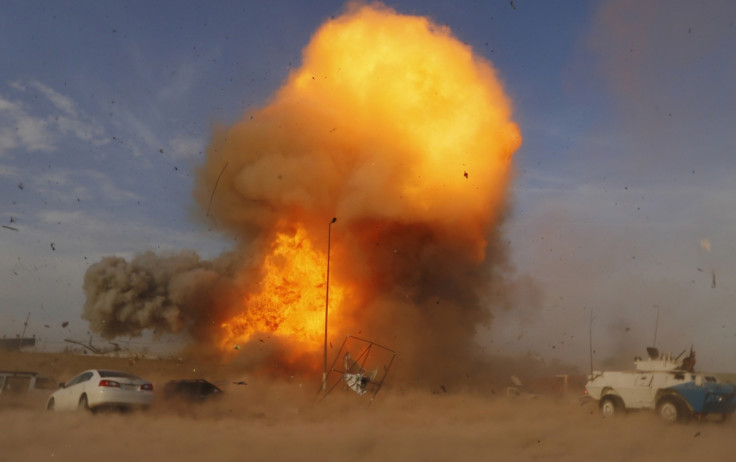Dozens Killed as Serial Blasts Tear Up Shia Election Rally in Baghdad

A series of explosions rocked an election campaign rally in Baghdad, killing at least 31 people and injuring dozens.
The Islamic State of Iraq and the Levant (ISIL), a breakaway group from al-Qaida, has claimed responsibility for the blasts that took place at the Industrial Stadium, where about 10,000 people had gathered to take part in a rally organised by the Shiite Asaib Ahl al-Haq group.
The ISIL said the blasts, which happened a week before national elections, were in retaliation to the massacre and expatriation of Sunnis by Shiite militia groups such as al-Haq.
Over 9,000 candidates, mostly Shiite, are in the fray for 328 seats in the national parliament.
One of the blasts was triggered by a suicide bomber at the rally in which the militant Shia group was to announce its candidates for the next week's election.
The stadium was shattered by the blast as a play on the 7<sup>th century martyrdom of Imam Hussein, Shiites' most revered saint, was being enacted. Following the bombing, guards reportedly started firing in all directions.
"I saw four charred bodies and several wounded people asking for help. There were also several damaged cars. Then, other blasts took place. People were in panic," Abu Sajad, a witness, told AP.
Iraq is plagued by sectarian strife between the country's Shiite majority and the Arab Sunni minority, and more than 8,000 people were killed in violence last year.
As many as 1,400 people were killed in the first two months of this year, according to UN estimates.
In the neighbouring Syria, President Bashar al-Assad's forces are fighting Sunni rebels affiliated to al-Qaida linked groups.
The al-Haq group is supporting Assad, who belongs to the Alawite sect of Shia faction, in the ongoing civil war in the country which has had a cascading effect on the security situation in neighbouring Iraq.
© Copyright IBTimes 2024. All rights reserved.





